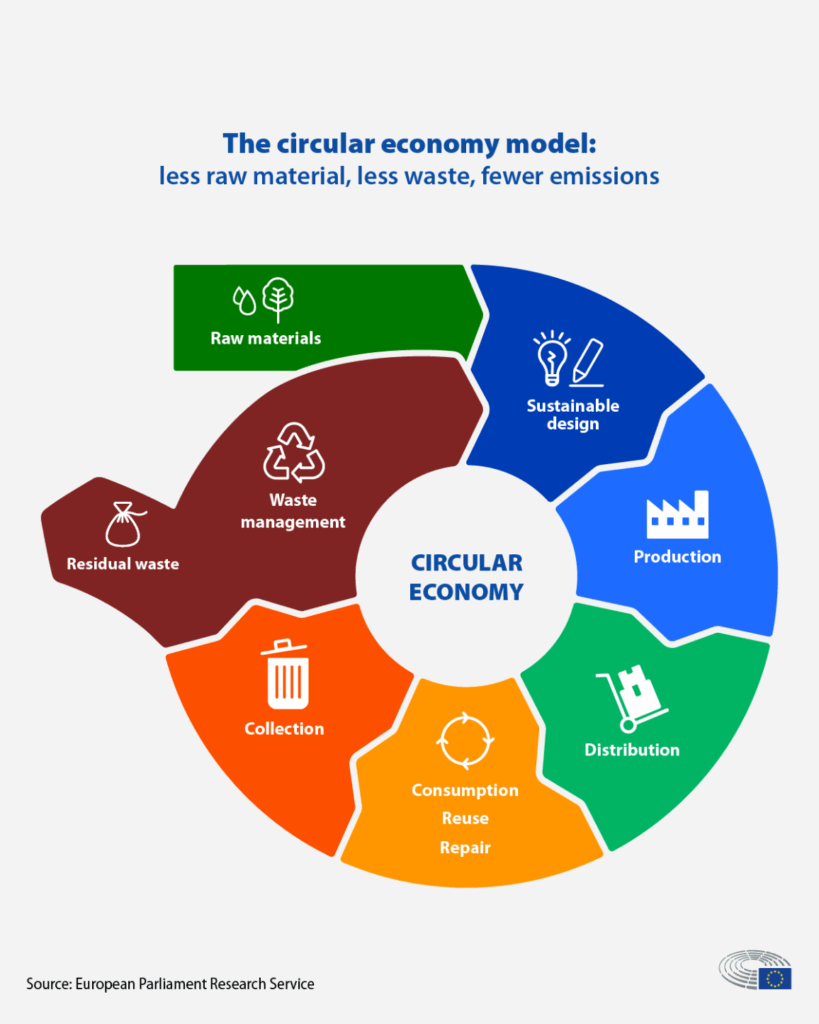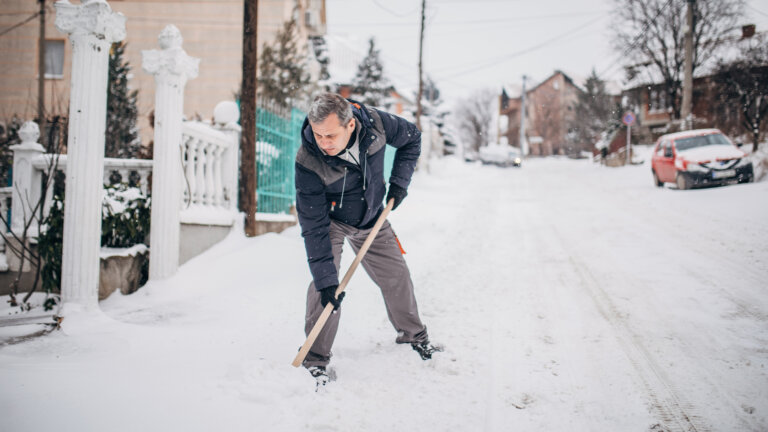Faced with the depletion of natural resources and the climate emergency, it is becoming essential to rethink the way we produce and consume. This article explores the principles of the circular economy, its concrete benefits and inspiring initiatives that show that this model is not only possible, but already underway.

From a linear economy to global saturation
Our current economic model is based on a simple but destructive logic: extract, manufacture, consume, discard. This linear model, inherited from the industrial revolution, is now reaching its limits.
A few figures to demonstrate the scale of the problem:
- In 50 years, the extraction of natural resources has increased 3.5-fold, reaching more than 90 billion tonnes per year.
- This extraction is responsible for 90% of global biodiversity loss and half of global greenhouse gas emissions;
- However, only 7.2% of the materials consumed worldwide are reintroduced into the economy, a figure that has been falling steadily in recent years.
The circular economy: a model inspired by nature
The circular economy offers a radical break with this linear system. Its principle? Nothing is lost, everything is transformed. Like natural ecosystems, it aims to keep resources in circulation for as long as possible and eliminate the concept of waste.
To achieve this, it is based on the “5Rs” scale:
Refuse, Reduce, Reuse, Repair, Recycle.
Each “R” is a key step in rethinking our production and consumption patterns and extending the life of objects.
But beware: recycling is not enough. Contrary to popular belief, it remains energy-intensive, limited and often ineffective in the long term. This is why upstream practices (reduction, reuse, eco-design) are much more virtuous.
Concrete actions to take today
It is possible to take action on an individual or collective level. Here are some simple practices based on the principles of the circular economy:
- Choose second-hand or reconditioned items;
- Repair instead of replacing: this extends the life of products and avoids the extraction of new resources.
- Share certain goods rather than owning them individually: for example, borrow DIY tools, borrow or rent a drill, or organise carpooling with colleagues;
- Avoid single-use products and opt for reusable and sustainable goods;
- Sort waste more effectively to make better use of what remains.
The Foyer Group is committed: two exemplary initiatives
The circular economy is not a utopian dream. It is already being implemented by responsible companies such as Foyer Group, which is stepping up its concrete actions to reduce its environmental impact.
The partnership with GPA enables the reuse of car parts from damaged vehicles. These parts, which are in perfect working order, are used to repair other cars, avoiding the production of new parts, while reducing costs for customers and cutting down on car waste.
The collaboration with La Poste promotes the repair of damaged phones instead of replacing them. This limits the extraction of scarce resources and extends the life of devices.
A necessary and inspiring transformation
As Dame Ellen MacArthur, founder of the Ellen MacArthur Foundation dedicated to promoting the circular economy, so aptly puts it:
“A circular economy gives businesses the means to reinvent themselves, society a more sustainable path, and the planet a chance to regenerate.”
It is no longer just a question of consuming differently, but of thinking differently, asking ourselves at every stage of a product’s life cycle: Is it necessary? Is it repairable? Can it be shared?
It’s time to act
The circular economy is not an option: it is a necessity in the face of planetary limits. It is also a source of innovation, economic resilience and sustainable jobs.
Whether you are a citizen, a business or an institution, everyone can take action at their own level. The model is well established, the solutions exist and there is no shortage of concrete examples. It is time to seize this opportunity to build a more sustainable future.
Thinking circular means responding today to an environmental emergency that cannot wait any longer.


